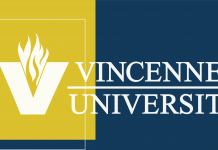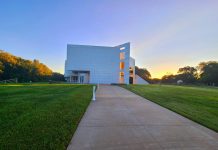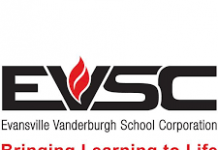VINCENNES, Ind., November 19, 2021 – Vincennes University students stare intensely at their smartphones. It’s not a viral TikTok video demanding their attention. They’re using Google Translate as a way of communicating with each other.
Education majors enrolled in VU’s Cultural Immersion Project course and students in the University’s English as an Additional Language program are bridging language barriers and making special connections. They meet weekly throughout the semester for one-on-one discussions ranging from fun facts about each individual to conservations about microaggressions. They’ve also spent time together watching movies, bowling, and dining at restaurants.
The experiences are valuable to all who are involved.
Education majors who will teach future generations of learners engage with fellow students from other countries and backgrounds, and they have international experiences that foster greater cultural understanding. EAL students have the opportunity to improve their conversational English, build vital social connections, and learn about their peers.
With the end of the fall semester drawing near, EAL students and Education majors gathered for an American holiday earlier this week. They celebrated Thanksgiving with a feast featuring turkey, green bean casserole, pies, and all the traditional holiday foods.
The meal was in conjunction with International Education Week (Nov. 15-19), which celebrates the benefits of international education and exchange worldwide.
The collaboration between the EAL program and Education Department is the brainchild of EAL Program Chair Emily Yetka and Education Department Program Chair Ann Herman.
“Emily’s students need conversation, and my students need diversity because a lot of students don’t have a lot of those opportunities,” Herman said.
Yetka said, “One of the reasons why it is so good is because research shows students are social. Learning is a social process. A lot of what is valuable and interesting to my students is social interactions. I try to stimulate that as much as I can, but there is no substitute for being in a conversation with someone and trying to figure out what they said and how do I respond.â€
The partnership very much aligns with the University’s commitment to diversity, equity, and inclusion.
“A lot of times when we are taught about diversity all we hear about the differences,†Education major Lori Albright said. “This program has helped me to see that we’re not all that different.â€
Countries from all over the globe are currently represented by students in the EAL program, including Bahrain, Brazil, Haiti, Honduras, Japan, Mexico, Poland, and Spain.
“My partner is from Honduras,†Education major Anna McMorris said. “It’s been really neat to learn about Honduras, but also talk about America because my experience of America is different from his experience of America. I also get to speak Spanish, which I love.â€
Cultural Immersion is a required course for students working toward a bachelor’s degree in Special Education, Mild Intervention K-12.
“When you are coming to a new country, and you don’t know the language that well, you can feel isolated,†McMorris, who is from Newton, Illinois. “This is important because it helps make a bridge to that. It opens the door for communication, thus forming relationships.â€
Suzu Mitobe is an exchange student from Tokyo, Japan.
“Sometimes I speak Japanese to American students, and the American students teach me English,†she said. “It is a very good experience.â€
Mitobe attends Utsunomiya University in Japan. She is majoring in agriculture economics.
“My language skills have improved, and I’m learning about American culture, American food, and American people,†she said.
Albright is a future teacher from Shoals, Indiana. Yet this experience is transporting her to Eastern Europe. Albright enjoys hearing from her EAL partner about what it is like growing up in Poland and Polish culture.
“I came from a rural school where we didn’t have much diversity at all,†Albright said. “We had a couple of students who may have moved in from different cities, but not different countries. One of my favorite parts of this is seeing the similarities that I actually have with my partner. A lot of her experiences in Poland have been similar to mine here. So, there aren’t as many differences as I would have expected.â€
Sayed Hashem Ali is from Bahrain. He has aspirations of studying aviation and becoming a pilot.
“They have questions for me about my country and my culture,†Ali said “I ask them questions about the U.S. and what people like and don’t like outside of school. It’s a very good experience for me. I like to meet American people and students. This is an awesome experience. This gives me pressure to learn more. When I hear the English language from people with an American accent, everything is easier.â€
One of Ali’s partners is Vincennes native and Education student David Lett.
“This is teaching me to be more fluid with how relationships go with people who are not from the United States and making sure that I am doing the best that I can to make them feel comfortable,†Lett said.
Lett, Albright, and McMorris plan to carry their experiences and knowledge from VU into their future careers as teachers. They agree it can help make them better educators.
“When you are a teacher, you have a lot of different students coming from diverse backgrounds,†McMorris said. “I think this experience helps open your eyes so you can see what you may encounter in the classroom. It is totally possible to have a student that is Spanish speaking only.â€





